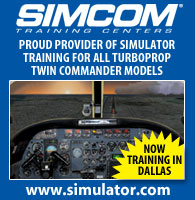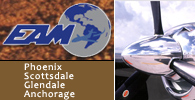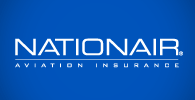How to Survive a Tax Audit of Your Aircraft

This is the first in a series on federal income tax examination.
There has been an increase in federal income tax audit activity for high-net-worth individuals and profitable small businesses. This often extends to all business activity, including aircraft operations. Such examinations generally last for months and require education of the auditor in the business interrelationship between the aircraft and the underlying business it supports.
Business Deductions from Aircraft Operations
A business typically is entitled to deduct both the depreciation and operating expenses of aircraft usage in furtherance of the trade or business. The principle limitation on any business deduction is that expenses will not be allowed if they are not ordinary, necessary, and reasonable in amount. It is the burden of the taxpayer to substantiate both the incurrence of the expenditure as well as its business relationship as reflected through adequate records. For a variety of non-tax reasons, including FAA restrictions, DOT limitations, state and local issues, and liability concerns to name a few, aircraft are often not owned and operated directly by the businesses they serve.
Without proper planning, there is a potential for income tax disadvantages resulting from the business needs of separation of aircraft ownership and operations.
The Perspective of the Revenue Agent
Due to the complexity of the Internal Revenue Code, IRS agents are often assigned to handle examinations where they have little or no experience with the more complex underlying tax issues. This is certainly true with respect to the subtleties involved in the use of an aircraft in a trade or business. In the interest of educating IRS agents the Internal Revenue Manual includes a “MSSP Training Guide” dedicated to aviation. This guide is available to the public (and available for review in pdf form at www.advocatetax.com).
This document attempts to educate the agent on the basic outline of federal aviation regulations as well as attempting to differentiate them from income and excise tax definitions of compensation. Chapter 8 - Corporate Flight Departments is worthwhile reading for a taxpayer who has been selected for examination to review the examining agent’s underlying education on aviation matters. The appendix of the MSSP training guide includes a synopsis of the tax rules related to federal excise tax on aviation from the government’s perspective. This too might prove interesting background reading for a taxpayer who may be exposed to federal excise tax liability for carriage of persons or property.
Beyond Ordinary and Necessary and Reasonable In Amount
In addition to the potential ordinary-and-necessary challenge, there are a number of other avenues IRS agents might use to attempt to disallow aircraft deductions. For example, the typical IRS agent might also examine the airplane activity from the perspective of determining it to be a hobby rather than a trade or business. Again an MSSP Training Guide has been written to assist the agents on understanding “hobby-loss” rules. If the agent can successfully characterize the airplane activity as a hobby, then all deductions in excess of related income can be subject to disallowance. Furthermore, even the deductions that are allowed to the extent of the income may be of less use to the taxpayer due to classification as miscellaneous itemized deductions, rather than business expenses.
Another fertile ground for attack by the examining agent is the passive activity rule. A loss from a passive activity is limited to other passive income until the activity is disposed of. Because business reasons often dictate the separation of an aircraft from a primary business, taxpayers may inadvertently create needless passive activity loss classification exposure.
Fortunately, the regulations governing passive activities provide an opportunity to group qualifying separate business undertakings for purposes of the passive activity rules. However, the IRS has issued a revenue procedure holding that a taxpayer who fails to make an affirmative election on his or her 1040 tax return to group undertakings for purposes of the passive activity rules may inadvertently lose this benefit, causing some losses that would otherwise be active to be passive. Again, this is an area in which the taxpayer must prepare for examination long before the IRS letter arrives.
The next area of attack by the IRS is often whether the business flights have been “substantiated.” It is not enough that the aircraft be actually used for business; you must be able to demonstrate the nature of that usage. Aircraft fall into a special category of property (automobiles are another example) for which the percentage of business use must be proved through records that show (1) the business reason for the travel, including the business benefit expected from it, (2) the dates of departure and return, and the number of days away spent on business, (3) the location, and (4) the amount of your aircraft expenses. You are able to show the expense amounts through an aggregation rule where all the aircraft expenses are added together and then prorated across the aircraft usage.
Preparing To Defend
As outlined above, securing income tax deductions for the operation of the aircraft requires more than that the aircraft be used in the furtherance of a trade or business. How it is owned and what elections are made are critical to securing your income tax deductions. These strategies and elections must often be accomplished at the time expense is incurred, and may not be rectified at the time of examination.
Once the Notice is Received
It is essential that the taxpayer under examination understand the reasons an examining agent is asking the particular questions raised. A taxpayer may believe the agent is merely trying to understand the nature of the business, while his real goal is to develop a theory that will allow him to charge more taxes. Although a taxpayer may understand the nature of his business, and the operation of his aircraft, far better than the examining agent, he often won’t understand the potential income and excise tax consequences of the questions. All answers must be accurate and honest, and also mindful that an unfortunate choice of wording could create a damaging misunderstanding that might be difficult or impossible to correct. The complexity of the law should alert a taxpayer of the need for representation by a law firm with knowledge in this specialized area.
Lou Meiners is a consultant with Advocate Consulting Legal Group, PLLC, a law firm whose practice is limited to serving the needs of aircraft owners and operators relating to issues of income tax, sales tax, federal aviation regulations, and other related organizational and operational issues.
IRS Circular 230 Disclosure. New IRS rules impose requirements concerning any written federal tax advice from attorneys. To ensure compliance with those rules, we inform you that any U.S. federal tax advice contained in this communication (including any attachments) is not intended or written to be used, and cannot be used, for the purpose of (i) avoiding penalties under federal tax laws, specifically including the Internal Revenue Code, or (ii) promoting, marketing or recommending to another party any transaction or matter addressed herein.
Discuss this article in the forums...







